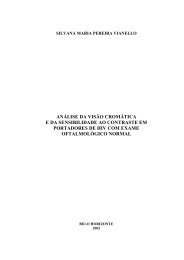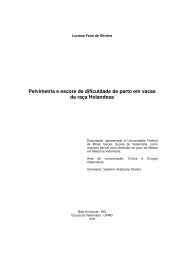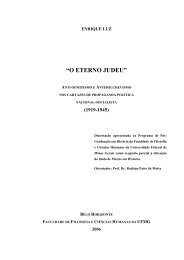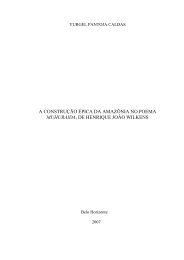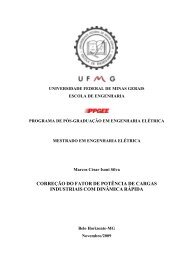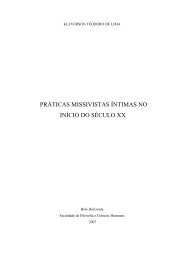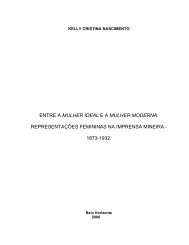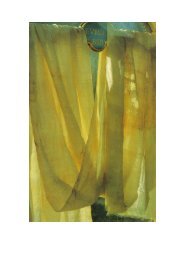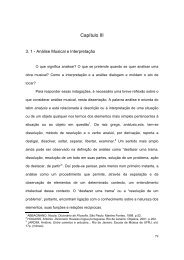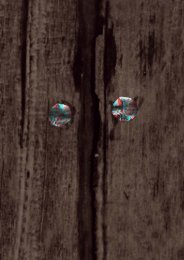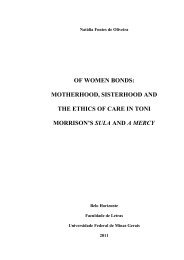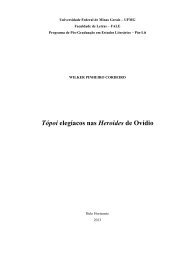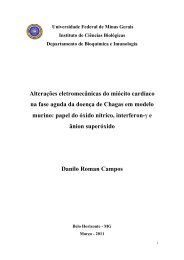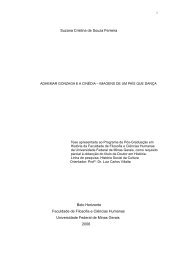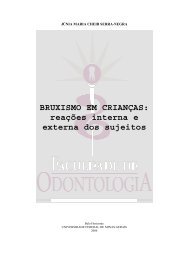Dissertação versao final abril de 2011 - Biblioteca Digital de Teses e ...
Dissertação versao final abril de 2011 - Biblioteca Digital de Teses e ...
Dissertação versao final abril de 2011 - Biblioteca Digital de Teses e ...
Create successful ePaper yourself
Turn your PDF publications into a flip-book with our unique Google optimized e-Paper software.
ABSTRACT<br />
The aim of this research is to i<strong>de</strong>ntify the role of the teacher and the participation of<br />
stu<strong>de</strong>nts in a dialogued Literary Reading experience, which took account groups of stu<strong>de</strong>nts<br />
on a literacy <strong>de</strong>velopment and also new literate stu<strong>de</strong>nts that are part of the Youths and Adults<br />
Education Program. The purpose is to verify the significance of the event for teachers and<br />
stu<strong>de</strong>nts, if the literary reading offer conditions for the stu<strong>de</strong>nts literary literacy, not just at<br />
school, but for their lives. Yet, according to the interviews, it verifies if the teachers consi<strong>de</strong>r<br />
themselves as literary rea<strong>de</strong>rs. In this context, the purpose of this paper is to verify if the role<br />
of reading is helping the stu<strong>de</strong>nts to un<strong>de</strong>rstand the world in a more comprehensible way or if<br />
reading is being used simply as a tool of <strong>de</strong>coding and <strong>de</strong>velopment of writing, and also to<br />
un<strong>de</strong>rstand what are the teachers literacy conception. The theorists consi<strong>de</strong>red are Magda<br />
Soares, Antonio Cândido and Paulo Freire. The conclusion of this paper consi<strong>de</strong>rs that<br />
stu<strong>de</strong>nts and teachers un<strong>de</strong>rstand the Literary Reading workshops as events of literacy<br />
significance because they promote a better and necessary un<strong>de</strong>rstanding of the world.<br />
Regarding the teachers literary reading, they have a poor literary reading experience; instead,<br />
they prefer other kinds of reading. Observing the reaction of the stu<strong>de</strong>nts when involved with<br />
the literary reading proposed and the thoughts about their answers in the questionnaire, the<br />
conclusion is that the stu<strong>de</strong>nts taste for the Literary can be aroused from activities <strong>de</strong>veloped<br />
in classroom. On the other hand it is not possible to guarantee its permanence outsi<strong>de</strong> the<br />
classroom. However, it is possible to un<strong>de</strong>rstand that activities like watching TV, reading<br />
notes, recipes and magazines are for the stu<strong>de</strong>nts that collaborate with this research a must.<br />
Literature can become a need if the work with the literary text becomes an effective and<br />
everyday practice insi<strong>de</strong> the classroom. The results acquired conclu<strong>de</strong> that just at the school<br />
space the majority of the stu<strong>de</strong>nts have access to this symbolic possession which is literature,<br />
and as Candido (1995) teach us, we cannot <strong>de</strong>ny them this right.<br />
Key word: Literacy, Literary Reading, Youths and Adults Education<br />
10



